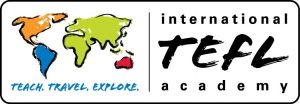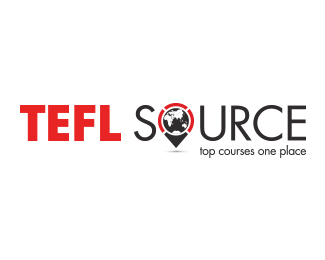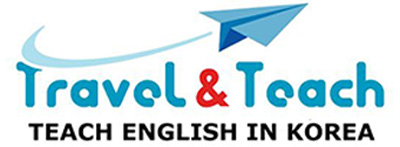TEFL courses got you confused? With so many options online, it’s difficult to know how to choose the best TEFL courses to teach in Korea. Which are accredited? Which provides the best long-term gain for future employment? Which ones are scams?
Travel & Teach Recruiting Inc. has been placing teachers in our schools in Korea since 2001. Since then, we have come to learn about the 3 best TEFL courses to teach in Korea in terms of curriculum and value. Here is our list:
- Bridge TEFL (TEFL Online) – The #1 Provider of TEFL courses in the United States
- International TEFL Academy – The World’s Largest TEFL School
- TEFL Source – Discounted TEFL Courses
Bride Education Group TEFL/TESOL (TEFL Online)

TEFLOnline.com is the largest provider of TEFL courses in the United States
and is accredited by the U.S. Department of Education. This certification is therefore recognized anywhere in the world where ESL is taught, including the US and Canada and is therefore recognized by Travel & Teach as one of the best TEFL courses to teach English in Korea.
TEFLOnline.com offers courses starting from just over $200. The most recommended course is the 120 hour Master Certificate that schools in Korea deem as one of the top TEFL courses for teaching Korean students.
The entire course is done online, so you are able to work around your schedule. In addition, you also have the assistance of a teacher that will correct your assignments and give you feedback on your work on your TEFL certification to teach in Korea.
International TEFL Academy
 Travel and Teach Recruiting recommends International TEFL Academy, the world’s largest TEFL certification schools to become professionally trained as an English teacher. ITA trains more than 6,000 English teachers annually and offers internationally accredited TEFL-TESOL certification courses online and in 25 locations around the world. All students and graduates receive lifetime job search guidance and graduates are currently employed as teachers in more than 80 nations in Asia, Europe, Latin America and the Middle East.
Travel and Teach Recruiting recommends International TEFL Academy, the world’s largest TEFL certification schools to become professionally trained as an English teacher. ITA trains more than 6,000 English teachers annually and offers internationally accredited TEFL-TESOL certification courses online and in 25 locations around the world. All students and graduates receive lifetime job search guidance and graduates are currently employed as teachers in more than 80 nations in Asia, Europe, Latin America and the Middle East.TEFL Source – Discounted TEFL Courses

With TEFL Source, all of your TEFL/TESOL options in one place. Whether you are looking to do an online course, a combo course (online and in class) or a specialized course (Business English, Young Learners English), you will find everything you need in the TEFL Source store.
And you don’t need to worry about any ‘scam’ courses here; TEFL Source only offers courses that are fully accredited, so you can concentrate on enrolling in the course that feels right to you and have confidence in knowing that it will be recognized by any school in Korea.
Our Best TEFL courses to teach in Korea
So there you have it! These are our top 3 TEFL courses to teach in Korea. It should be noted that there are 100’s, if not 1000’s of TEFL courses online. Be careful as many are not recognized by any institution, making them both a waste of your time and money.
If you have any specific questions about which TEFL course is best for you, feel free to contact us and we’ll help you out!
______________________________________________________________________________
While it is possible to teach in South Korea without a TEFL (Teaching English as a Foreign Language) or TESOL (Teaching English to Speakers of Other Languages) certification, it is becoming increasingly rare and more challenging. South Korea has generally tightened its requirements for English teachers in recent years, and most reputable employers now require candidates to have at least a TEFL or TESOL certificate. Here are a few things to consider:
- Employer Requirements: Many hagwons (private language academies), international schools and language institutes in South Korea now specifically request TEFL or TESOL certification as a requirement for hiring teachers. This is often a matter of policy set by the South Korean Ministry of Education to ensure that teachers have received proper training in English language instruction.
- Competitive Job Market: The job market for teaching positions in South Korea is competitive, and having a TEFL or TESOL certification can give you a significant advantage over other candidates who do not have one. It may be more challenging to secure a teaching job without this certification.
- Legal Visa Requirements: To obtain a teaching visa (E-2 visa) in South Korea, you generally need to meet specific requirements, and one of these requirements is often having a TEFL or TESOL certificate with a minimum number of training hours. Not meeting these visa requirements could jeopardize your ability to work legally in South Korea.
- Quality of Instruction: Having TEFL or TESOL certification demonstrates that you have received training in effective teaching methods and strategies. It can help you provide better instruction to your students, making you a more valuable teacher in the eyes of employers.
- Professional Development: TEFL and TESOL courses provide valuable professional development that can benefit you throughout your teaching career, not just in South Korea.
While a handful of employers may still hire teachers without TEFL or TESOL certification, it’s essential to understand that the trend is moving toward requiring this certification. Therefore, if you are considering teaching in South Korea or in other countries, it’s highly recommended to obtain a TEFL or TESOL certificate to improve your job prospects, meet visa requirements, and enhance your teaching skills. It can be a worthwhile investment in your teaching career, both in South Korea and in other locations where English teaching opportunities are available.
________________________________________________________________________________
Choosing the best TEFL course to teach English in Korea
This is a crucial step in preparing for a successful teaching experience. Here are some guidelines to help you make an informed decision:
- Accreditation: Look for TEFL courses that are accredited by recognized organizations in the field of English language teaching. Accreditation from bodies like the British Council, ACCET (Accrediting Council for Continuing Education and Training), or the College of Teachers is a good sign of quality.
- Course Duration: South Korea typically requires a minimum of 100-120 hours of TEFL training for E-2 visa applicants. Ensure the course you choose meets this requirement.
- In-Person vs. Online: Decide whether you prefer an in-person or online course. Both options have their advantages and disadvantages. In-person courses may provide more hands-on teaching practice, while online courses offer flexibility.
- Curriculum: Review the course curriculum. It should cover language teaching methodologies, lesson planning, classroom management, and practical teaching experience. Ensure it includes topics relevant to teaching English in a foreign context.
- Practical Experience: Practical teaching experience is invaluable. Look for courses that include observed teaching practice with non-native English speakers, as this will help you feel more prepared for teaching in Korea.
- Course Reputation and Reviews: Research the reputation of the course and read reviews from past students. Reliable courses will have positive feedback from graduates who have successfully found teaching jobs in Korea.
- Cost: Consider the course cost and whether it fits within your budget. Keep in mind that the cheapest option may not always be the best in terms of quality.
- Job Placement Assistance: Don’t worry, your Travel and Teach Representative will handle this for you :)
- Certification: Ensure that the course provides a recognized TEFL certificate upon completion. This certificate can be a requirement for obtaining a job teaching English in Korea.
- Support and Resources: Look for courses that offer ongoing support and resources after you complete the program. This can be helpful when you’re in Korea and facing the challenges of teaching.
- Cultural Preparation: Some courses provide cultural orientation as part of their program. This can be helpful in understanding the Korean language and culture, as well as adapting to life in Korea.
- Visa and Legal Considerations: Verify that the course meets the requirements set by the Korean government for E-2 visa applications. It should include the necessary hours and practical teaching experience to be eligible.
- Alumni Network: Some TEFL programs have active alumni networks that can be beneficial in terms of job connections and advice from those who have taught in Korea.
- Local Regulations: Familiarize yourself with any specific requirements and regulations for teaching English in Korea. Your TEFL course should prepare you for these.
- Personal Preferences: Consider your own preferences, such as the type of school (private, hagwon, international, etc.) and location in Korea where you would like to teach. Ensure the course prepares you for your specific teaching goals.
Once you’ve thoroughly researched and compared different TEFL courses above based on these criteria, you should have a better idea of which course aligns best with your goals and needs for teaching English in Korea. Additionally, it’s a good idea to consult with current or former English teachers in Korea for their insights and recommendations.


